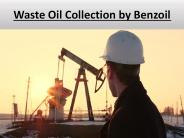Oil Tank Recovery Services PowerPoint PPT Presentations
All Time
Recommended
West Coast Tank Recovery is a reliable residential and commercial oil tank removal and contaminated soil remediation in Vancouver. To discuss your oil tank removal requirements, call at 604-628-8786.
| PowerPoint PPT presentation | free to download
An Oil Tank Removal NJ business could come on to your home and also analyze the state of the circumstance. You could not need to have it eliminated completely. It is feasible that the container remains in good working order, or it could potentially left onsite. Having among these specialized firms appear could aid you out. It is very important to care for this beforehand, prior to you acquire the residential or commercial property concerned. Browse this site http://ancoenv.net/oil-tank-removal/ for more information on Oil Tank Sweep NJ. Follow Us : http://oiltanknj.flavors.me https://secure.gravatar.com/oiltankremovalx https://storify.com/BestOilTankNJ http://oiltanksnj.wordpress.com
| PowerPoint PPT presentation | free to download
Having an unused underground oil tank installed in your property contaminates the soil and needs to be removed to follows related laws and guidelines. Here is how calling for an oil tank removal expert can help.
| PowerPoint PPT presentation | free to download
Check this link right here http://ancoenv.net/oil-tank-removal/ for more information on Oil Tank Removal NJ. If you happen to notice any stains or gas smells after the Oil Tank Removal NJ, the best option is to get in touch with your local state environmental protection agency. Regardless of how carefully these units are removed, they have a high tendency to rupture. Your local state environmental protection agency will best be able to instruct you on how to properly clean the mess. Follow Us : http://oiltankremovalx.tumblr.com http://oiltanknj.flavors.me http://www.stumbleupon.com/stumbler/OilTankRemovalx http://www.diigo.com/profile/bestoiltanknj
| PowerPoint PPT presentation | free to download
If you have an old oil tank buried underground on your property, it's better to have the same removed with the help of a professional company. The cons of owning a property with a buried oil tank seem more obvious; thus, it's good to have the oil tank removed soon.
| PowerPoint PPT presentation | free to download
Planning to sell your property in North Vancouver? Ensure that you have no oil tank on your property. Hire oil tank detection services from West Coast Tank Recovery today! Get expert assistance.
| PowerPoint PPT presentation | free to download
Major companies operating in the tank level monitoring systems sector are focusing on developing technology advanced solutions for tank level monitoring systems.
| PowerPoint PPT presentation | free to download
Owned by two Vancouver entrepreneurs, West Coast Tank Recovery Inc. offers comprehensive solutions for residential and commercial oil tank removal. Our team is highly specialized in the detection and removal of above and underground oil tanks and in the remediation of contaminated residential and commercial properties. Call us on 604 628 8786 or visit us at : www.wctankrecovery.net
| PowerPoint PPT presentation | free to download
It is the skills & experience of a professional Oil Tank Detection and Removal Expert like West Coast Tank Recovery that satisfactory service is guaranteed.
| PowerPoint PPT presentation | free to download
You should remove abandoned underground oil tankers immediately if they are on your property. To detect and have them removed, contact West Coast Tank Recovery.
| PowerPoint PPT presentation | free to download
Benzoil is one of the leading waste oil collection service providers in Australia. We specialize in the collection used transformer oil, lube oil, and synthetic oil. For details, call us or visit our website.
| PowerPoint PPT presentation | free to download
Thermodyne Engineering System (TES), an ISO 9001:2008 certified company with enhancing Energy Efficiency, is a trusted name in Indian Boiler Industry. It's an engineering establishment specializing in the field of process heat equipment like Steam boilers, Hot water generators, Thermic fluid heaters, Hot air generators, Waste heat recovery boilers and allied products and Its ancillaries like Chimney, ID & FD Fan etc. Mobile No. : +91-9891042944 / +91-9990212122 Landline No. : +91-120-4110482, 4562332 Website: http://www.thermodyneboilers.com
| PowerPoint PPT presentation | free to download
Power Plants Engineering Services. Erection, Supervising, Commissioning, Operating, Maintenance Services. Diesel HFO Engines, Steam Turbines, Gas Turbines, Natural Gas Engines
| PowerPoint PPT presentation | free to download
Global flare gas recovery systems (FGRS) market for oil and gas industry is estimated to grow from US$ 930.4 Mn in 2014 to US$ 2,019.5 Mn by 2020 at a CAGR of 13.8% during the forecast period. During the production and refining process of natural gas, for safety reasons and maintenance activities considerable volumes of natural gas are flared into atmosphere.
| PowerPoint PPT presentation | free to download
The construction of all facilities that are involved in oil & gas production, transportation or refining is categorized under this category.
| PowerPoint PPT presentation | free to download
CASE CX26B CX30B Series 2 Mini Excavator Service Repair Manual Instant Download
| PowerPoint PPT presentation | free to download
CASE CX26B CX30B Series 2 Mini Excavator Service Repair Manual Instant Download
| PowerPoint PPT presentation | free to download
CASE CX30B Series 2 Mini Excavator Service Repair Manual Instant Download
| PowerPoint PPT presentation | free to download
CASE CX26B Series 2 Mini Excavator Service Repair Manual Instant Download
| PowerPoint PPT presentation | free to download
CASE CX35B Series 2 Mini Excavator Service Repair Manual Instant Download
| PowerPoint PPT presentation | free to download
CASE CX39B Series 2 Mini Excavator Service Repair Manual Instant Download
| PowerPoint PPT presentation | free to download
CASE CX35B Series 2 Mini Excavator Service Repair Manual Instant Download
| PowerPoint PPT presentation | free to download
CASE CX39B Series 2 Mini Excavator Service Repair Manual Instant Download
| PowerPoint PPT presentation | free to download
BOBCAT 643 SKID STEER LOADER Service Repair Manual Instant Download
| PowerPoint PPT presentation | free to download
BOBCAT 443B SKID STEER LOADER Service Repair Manual Instant Download
| PowerPoint PPT presentation | free to download
BOBCAT 440 SKID STEER LOADER Service Repair Manual Instant Download
| PowerPoint PPT presentation | free to download
CASE CX30B Series 2 Mini Excavator Service Repair Manual Instant Download
| PowerPoint PPT presentation | free to download
CASE CX26B Series 2 Mini Excavator Service Repair Manual Instant Download
| PowerPoint PPT presentation | free to download
BOBCAT 443 SKID STEER LOADER Service Repair Manual Instant Download
| PowerPoint PPT presentation | free to download
BOBCAT 443 SKID STEER LOADER Service Repair Manual Instant Download
| PowerPoint PPT presentation | free to download
BOBCAT 440 SKID STEER LOADER Service Repair Manual Instant Download
| PowerPoint PPT presentation | free to download
CASE CX55B Mini Excavator Service Repair Manual Instant Download
| PowerPoint PPT presentation | free to download
CASE CX50B Series 2 Mini Excavator Service Repair Manual Instant Download
| PowerPoint PPT presentation | free to download
BOBCAT 443B SKID STEER LOADER Service Repair Manual Instant Download
| PowerPoint PPT presentation | free to download
CASE CX35B Series 2 Mini Excavator Service Repair Manual Instant Download
| PowerPoint PPT presentation | free to download
CASE CX45B Series 2 Mini Excavator Service Repair Manual Instant Download
| PowerPoint PPT presentation | free to download
BOBCAT 641 SKID STEER LOADER Service Repair Manual Instant Download
| PowerPoint PPT presentation | free to download
BOBCAT 642 SKID STEER LOADER Service Repair Manual Instant Download
| PowerPoint PPT presentation | free to download
CASE CX39B Series 2 Mini Excavator Service Repair Manual Instant Download
| PowerPoint PPT presentation | free to download
CASE CX55B Mini Excavator Service Repair Manual Instant Download
| PowerPoint PPT presentation | free to download
CASE CX30B Series 2 Mini Excavator Service Repair Manual Instant Download
| PowerPoint PPT presentation | free to download
CASE CX26B Series 2 Mini Excavator Service Repair Manual Instant Download
| PowerPoint PPT presentation | free to download
CASE CX50B Series 2 Mini Excavator Service Repair Manual Instant Download
| PowerPoint PPT presentation | free to download
CASE CX45B Series 2 Mini Excavator Service Repair Manual Instant Download
| PowerPoint PPT presentation | free to download
BOBCAT 642 SKID STEER LOADER Service Repair Manual Instant Download
| PowerPoint PPT presentation | free to download
BOBCAT 643 SKID STEER LOADER Service Repair Manual Instant Download
| PowerPoint PPT presentation | free to download
BOBCAT 641 SKID STEER LOADER Service Repair Manual Instant Download
| PowerPoint PPT presentation | free to download
John Deere 17G (PIN 1FF017GX_ _K225001— ) Compact Excavator Service Repair Manual Instant Download (TM13326X19)
| PowerPoint PPT presentation | free to download
BOBCAT 440 SKID STEER LOADER Service Repair Manual Instant Download
| PowerPoint PPT presentation | free to download
CASE CX55B Mini Excavator Service Repair Manual Instant Download
| PowerPoint PPT presentation | free to download
CASE CX50B Series 2 Mini Excavator Service Repair Manual Instant Download
| PowerPoint PPT presentation | free to download
BOBCAT 443B SKID STEER LOADER Service Repair Manual Instant Download
| PowerPoint PPT presentation | free to download
BOBCAT 443 SKID STEER LOADER Service Repair Manual Instant Download
| PowerPoint PPT presentation | free to download
CASE CX45B Series 2 Mini Excavator Service Repair Manual Instant Download
| PowerPoint PPT presentation | free to download
BOBCAT 642 SKID STEER LOADER Service Repair Manual Instant Download
| PowerPoint PPT presentation | free to download
BOBCAT 643 SKID STEER LOADER Service Repair Manual Instant Download
| PowerPoint PPT presentation | free to download
























































